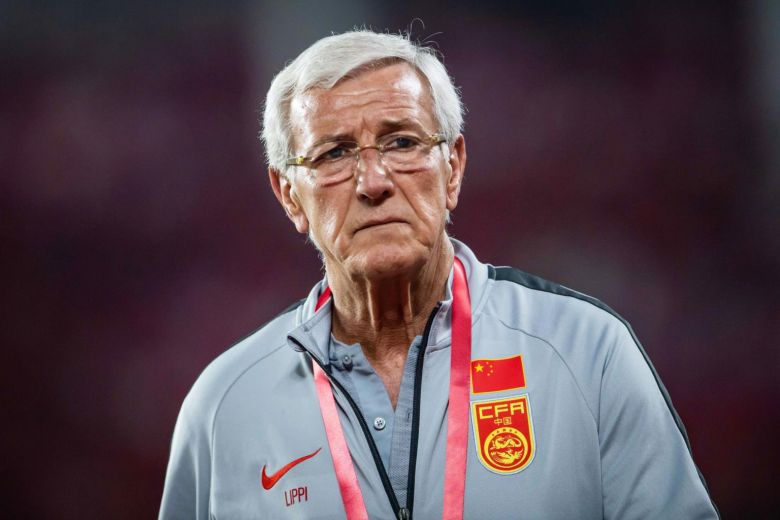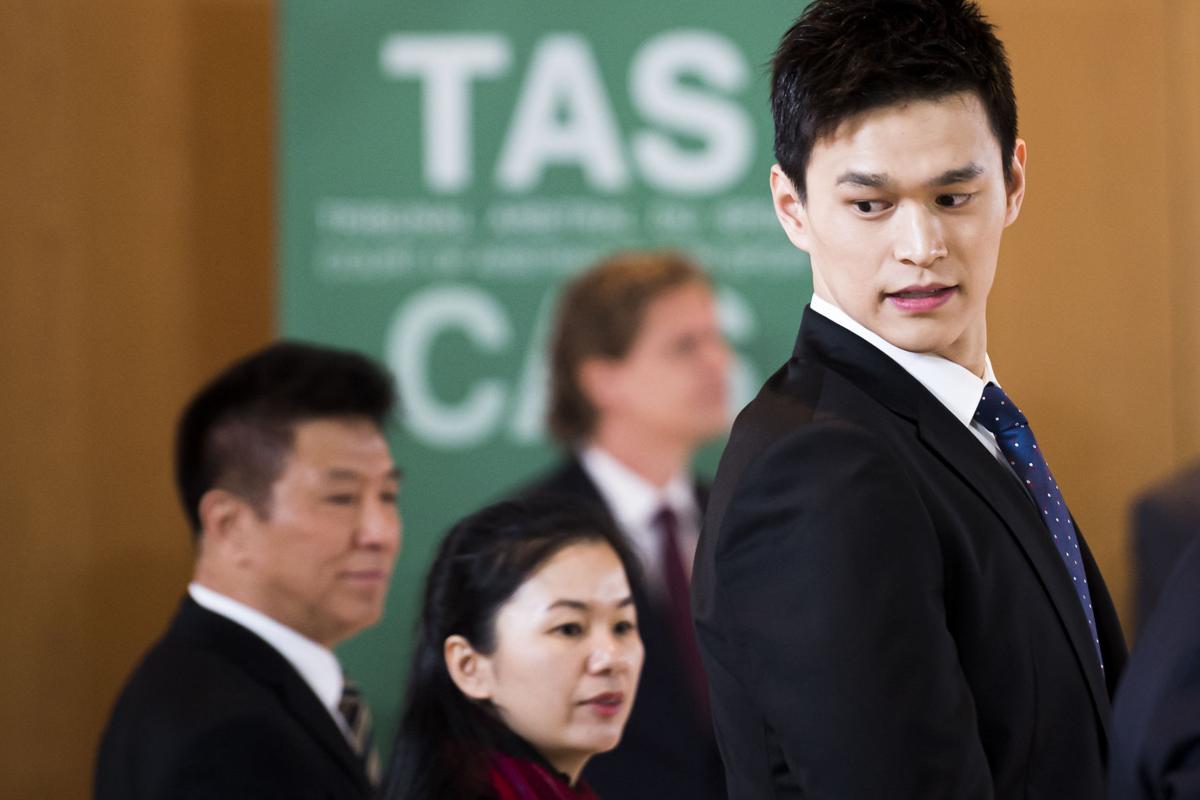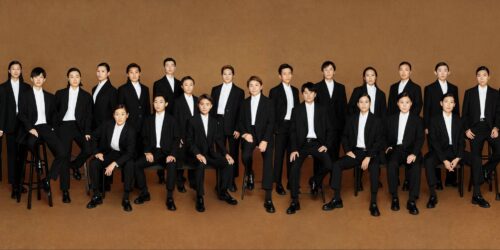Lippi resigns as Chinese national team manager — again. What’s next for Team China?

The China Sports Column is a The China Project weekly feature.
Marcello Lippi resigned as head coach of the Chinese national soccer team after a 2-1 defeat to Syria in 2022 World Cup Qualifying last Thursday. The only silver lining for China was that the game was played in Dubai and not on Chinese soil, where the home fans would have had a few choice words. The winning goal came in the 76th minute, and was an own goal.
https://www.youtube.com/watch?v=dmThwk7_QQo
This is the second time the 71-year-old has resigned from the post this year, as he quit as head coach in January after a quarterfinal exit in the Asian Cup.
The defeat has left China five points adrift of Syria in Asian qualifying Group A. While sitting second in the table, the loss comes off the back of a disappointing goalless draw away to the Philippines, and now the task of overturning Syria looks unlikely.
The mood had soured around the coach beyond the lackluster soccer on show against “stronger” sides. For fans and pundits, Lippi’s high salary — $28 million a year — was a constant point of tension. Economic Weekly published a photo of the World Cup-winning coach bare-chested in a kayak smoking a cigar, stating that he had earned over $57 million during his two spells as Chinese head coach.
“My pay is very high and I take all the blame. I am quitting as China coach,” was the Italian’s response to a question about his salary from a Xinhua sports correspondent.
Beyond the high salary, criticism of the manager around his failure to take responsibility for poor results was another common annoyance for fans and media.
“We could beat weaker opponents like the Maldives (5-0 away) and Guam (7-0 at home), but when we encountered stronger teams like the Philippines and Syria, we could not play our own football,” Lippi said.
With the Italian gone, the one saving grace for the Chiense Football Association (CFA) is that they have until March to get a replacement, when the next set of internationals roll around. However, one name that is unlikely to replace Lippi is his protégé Fabio Cannavaro. The 46-year-old Italian was Lippi’s captain during the 2006 winning World Cup campaign and was Lippi’s replacement after his first resignation in January. Cannavaro only lasted two games as China’s national team boss before Lippi returned. The current Guangzhou Evergrande coach now seems to be on his way out after a poor run of form left them a single point ahead of a huge top-of-the-table clash against Shanghai SIPG on Saturday.
The World Cup-winning captain is now set to be replaced as head coach at the end of the season, even if Evergrande does win that game (and probably the title thereafter).
While Cannavaro looks unlikely to get the job, another Evergrande boss could be in line for Lippi’s former position. Luiz Felipe Scolari has been the name on a lot of pundits lips, reported by Xinhua to be prepared to listen to “an offer.”
Recently sacked by Palmeiras in Brazil’s top flight, Scolari has a CV that is not dissimilar from Lippi’s. Success with Evergrande (three Chinese Super League titles, CFA Cup, and an Asian Champions League) as well as his own World Cup success after he led Brazil to the crown in 2002.
On the other hand, Scolari would represent the continuity choice, and it’s not clear that’s what China needs right now. Scolari, the same age at Lippi, will be 74 at the next World Cup — if China ever does qualify — and represents a group of managers from the last decade that has been left behind by the forward-thinking modern coaches that dominate modern football. Scolari is perhaps the safe choice, but he is certainly not an exciting one.
Knowing the CFA, considering Scolari’s previous successes internationally and in China, we’d say it’s a safe bet he’ll get the job.
Qatar 2022 to stick with 32-team format, delivering massive blow to China’s World Cup hopes
A salary cap is on its way to the Chinese Super League (CSL)

In more soccer news the week, the CFA issued a directive stopping clubs from offering new contracts to domestic players in the country. The Chinese soccer governing body is seeking to introduce a salary cap for domestic players in the professional league next season.
The CFA has been desperate to introduce a modicum of sustainability into the sport, as spending has continued to rise at the top of the game. A source told the state news agency, “nearly one-third the clubs have unpaid wages, and even Chinese Super League clubs are unsustainable. The leagues have bubbles, which is very dangerous. If the leagues are unstable, the youth training and the national team will be greatly affected.”
According to the source, the CFA is planning to publish this proposal at the start of next month, as to not affect the upcoming winter transfer window. Of course, in classic CFA fashion, introducing such wide-ranging regulations is bound to seriously affect the transfer window and next season’s preparations for the clubs, as most teams begin planning for January months in advance.
However, the most interesting thing to come out of this story is that it seems that the CFA is beginning to give up on the idea of seeing young talents develop domestically. “The CFA doesn’t want them to stay in domestic leagues and make a great fortune. They should learn from Japanese players to explore top-level football overseas,” the source told Xinhua. Japanese and South Korea players are found across the top leagues in Europe. The access to top-level coaching and competition for these players has helped the national teams of the two nations develop and increase the gap between them and China.
Yet, questions around the historic corruption at the youth level and structural problems for developing talent remain unanswered. Looking through the national team now, not many players, if any, have the ability to make it in a top European league in the same way a Son Heung-min or Shinji Kagawa have.
Sun Yang case draws to an end; judgment pending
The anti-doping case involving Sun Yang and FINA wrapped up in Switzerland this week. Both Sun Yang and FINA have been appearing before the Court of Arbitration for Sport (CAS) after World Anti-doping Agency (WADA) brought a case pertaining to the accusation that Sun smashed a vial of blood following a disagreement about a tester’s credentials in September 2018.
Sun Yang, somehow, escapes punishment for smashing blood vial with hammer
The case at CAS has been a slow affair, with 11-hour days involving legalese and poor translations between the parties.
While the day-to-day action in the hearing has been a little boring, the surrounding coverage has been interesting. Driven mostly by Chinese state media, which is firmly out to bat for the star, there was firstly an interview with the swimmer himself after his first big day at the hearing with Xinhua. During the interview, Sun called on athletes to fight back against “injustice” and to defend “the basic rights and privacy that he is legally entitled,” the athlete said without any hint of irony.
Second, there was another interview with Sun’s Australian coach, effectively highlighting the argument that Sun is making to CAS but also highlighting the fact that his coach is Australian. It was the Australian team during the World Championships in Gwangju that was the most vocal in their disapproval of Sun.
Finally, there was the arrival on the scene of a construction worker. The construction worker, interview by — who else? — Xinhua appeared on Wednesday after the CAS had retired to consider the evidence. It is alleged that this construction worker was the chaperone of the doping control assistant and that he did not have the appropriate credentials to be there.
“I knew nothing about the doping test and nothing about my role that night. I just came to help my middle school classmate at her request. I am a builder,” was the claim of the man who accompanied the drug tester to Sun Yang’s home.
It seems that this latest interview by the state news agency could reopen the whole case for Sun, as his lawyers are already beginning to agitate to the CAS to allow this new witness to be heard by the court. For some really good analysis of this new turn in the case, check out this piece by Swimming World Magazine.
The China Sports Column runs every week on The China Project.






